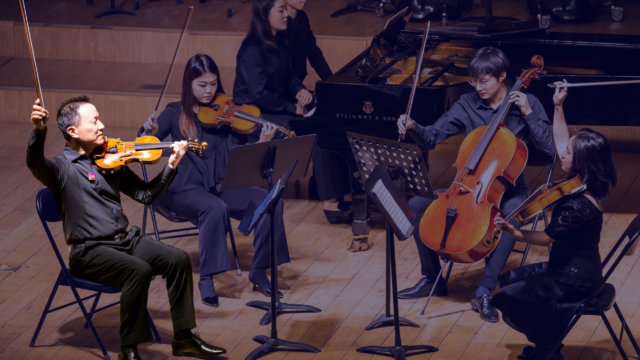Playing Your Part – The Truth about Advocacy and Lobbying
People often use the two words “advocacy” and “lobbying” interchangeably, and while there is overlap between the two, they are not exactly the same. Let’s clear up what each means:
Advocacy is the broader of the two terms and can refer to general efforts to advance a point of view or make your case. Advocacy takes place, for example, through traditional and social media, in panel discussions and conferences, and in communications with any individuals or group. When you’re telling a prospective donor, reporter, or civic leader what your orchestra does and why it matters, you’re engaging in advocacy. You can be an advocate for your organization or cause before just about any audience; advocacy, in the context of nonprofit organizations today, includes, but is not limited to, lobbying.
Lobbying is defined by the IRS in a very specific way and refers to specific efforts to persuade people about specific government legislation. The targets of lobbying are mainly your elected public officials, but can include the news media, your audiences, and the public in general. As a private citizen, you have the right to freely express yourself on government policy. For a nonprofit tax-exempt organization, such as an orchestra, there are some specific rules to follow, but compliance is very easy.
This guide is mainly focused on lobbying—also called government affairs, government relations, or government advocacy. We also describe action you might take beyond the IRS definition of lobbying to influence public policy. For this guide, we use the term “public policy advocacy” for that broader array of activities. Let’s clear up false assumptions that many in the orchestra world have about public policy advocacy and whether they can—or should—lobby at all.
Fiction: There are laws that prevent orchestras (and other nonprofit organizations) from lobbying, or the laws are so restrictive that it wouldn’t pay to try.
Fact: The law encourages nonprofit organizations to lobby, and sets broad, generous limits that impose no significant paperwork or legal burden on any individual or organization.
Fiction: There are very few times when public policy really affects my orchestra, and I have more pressing priorities to deal with every day.
Fact: The outcomes of public policy will greatly affect your orchestra’s everyday ability to raise charitable contributions, program and present international artists, and partner with schools. Time spent on lobbying is time well spent.
Fiction: I’m not a policy expert; I wouldn’t know what to say. Also, policymakers won’t care about what I have to say anyway.
Fact: You don’t have to be an expert on the big picture of tax reform, public education, or immigration. You just have to explain how these issues affect your orchestra’s ability to serve your community—something you’re uniquely qualified to do. Also, the League’s policy team is here to help: we maintain easy-to-use online issue centers that provide concise talking points, background information, and messages set up for you to personalize and communicate to your members of Congress about various legislative and regulatory issues. As for policymakers not caring, remember that elected officials work for you, and it’s their job to be receptive to your concerns.
Fiction: My policymakers always oppose [or] always support the arts, so lobbying them would be a waste of time.
Fact: Given the wide array of issues that affect orchestras, there is a strong chance your elected officials will support at least one of them. And supportive policymakers can be thanked and encouraged to cultivate support from their peers. Don’t write off your elected officials—you never know when they might actually come around to your point of view the more they understand what you do and how the community perceives your work. And don’t take them for granted, either!
Fiction: My orchestra shouldn’t have to lobby—that’s one of the reasons we pay dues to the League of American Orchestras and to our state arts advocacy group.
Fact: The League and other national and state arts organizations do lobby directly. However, your voice is worth more than ten office visits by a hired lobbyist. The League can monitor, inform, and persuade as much as possible, but constituent input (yours) is the key. Do not underestimate your own influence.
Fiction: Lobbying is already being done by others more influential and experienced than my organization or I can ever be.
Fact: Given the many musicians, volunteers, trustees, and audience members involved in your orchestra, you represent a substantial constituency. Furthermore, no matter your orchestra’s size or age, you are part of the nonprofit community, and that in itself is a highly regarded trait in policy circles, which was confirmed by polling among swing voters during the 2016 presidential election.
Article Topics:
Related Links & Assets
Related
-
Learn | Travel with Instruments
Know Your Bow: New Rules and Essential Steps for Pernambuco Sustainability
-
News | Advocacy
NEA, Bow Owners, Visas, and Charitable Giving
Become a member
Thank you for your interest in the League of American Orchestras! We are dedicated to advancing the orchestral experience for all.
Join Now
